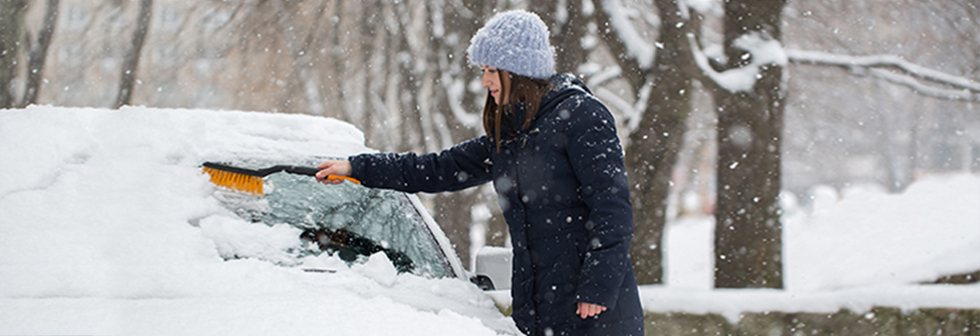By Nanaz Khosrowshahi
As white snow falls in the colder months, try to avoid the white halls of the hospital emergency room with this list of accident-prone situations to consider. The elderly and kids are the most susceptible during this season.
Snow shoveling:
A sixteen-year study from the American Journal of Emergency Medicine found that snow removal was involved in an estimated 100 deaths and over 11,000 emergency room injuries each year. Recognize the signs and symptoms of a heart attack and do not overexert yourself. Winter gear like hats and scarves block your hearing and vision so exercise caution.
Warm your muscles up before starting. Push snow versus lifting and lift using your legs instead of your back. Every time you toss snow to the side or over your shoulder, it adds back strain.Consider hiring local high school kids to shovel snow for you if that is an option.
Falls:
Icy patches lurk underneath newly fallen snow so walk on packed snow to avoid slips. Pass on plastic or leather soles that will heighten your slip risk. Grip the car door frame or steering wheel when stepping out of the car.
Carbon monoxide:
Carbon monoxide (CO) draining from furnaces, fireplaces, heaters, and stoves increases the risk for CO poisoning, so check your appliances. Obtain a CO detector and ensure it is working. Do not mistake nausea, vomiting, headache, or dizziness from this odorless and colorless gas for signs and symptoms of cold or flu.
Frostbite and hypothermia:
Dress in loose-fitting, dry layers of waterproof or moisture-wicking clothes instead of one thick layer. Remove wet clothes immediately to prevent frostbite and hypothermia.
To consider during wintertime
Vehicles:
Stock up your car with spare batteries and a flashlight, non-perishable snacks, water, a first aid kit, jumper cables, a shovel, a windshield scraper, and rock salt.
Skin:
To avoid itchy, dry, and cracked skin stop using products with these ingredients benzoyl peroxide, salicylic acid, alcohol, and fragrances.
Asthma and allergies:
Allergies or asthma from mold, pets, or dander call for removal with a HEPA filter on a vacuum cleaner. You should also consider laundering your bed sheets weekly to bid farewell to dust mites.
Clean your humidifier.
Hygrometers help keep humidity levels in check.
Pets:
Sugary antifreeze dripping from your car onto the ground appeals to dogs and cats, leading to kidney failure.
Dogs and cats can suffer from hypothermia and frostbite as well.





